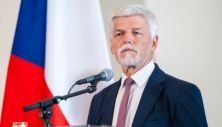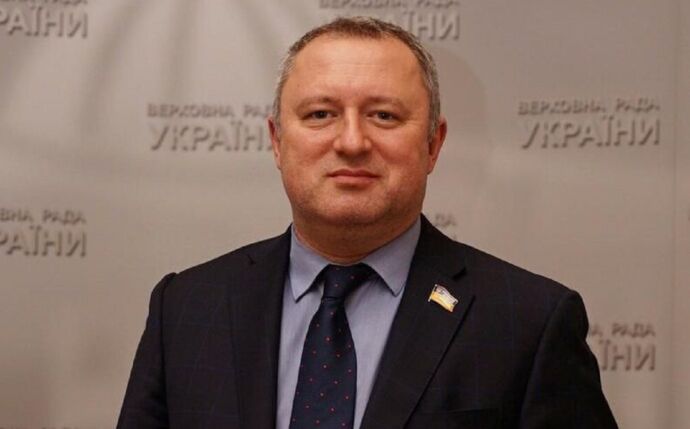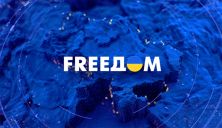Talks of political advisers of the Normandy format, which took place on January 26 in Paris. Issues lobbied by the Ukrainian delegation of the Tripartite Contact Group. The position of the Russian Federation during the negotiations. The head of the Ukrainian delegation to the Tripartite Contact Group for the Settlement of the Situation in Donbas Andriy Kostin spoke in more detail about these topics in the Informden program on the UA TV channel.
The host of the program is Denys Pokhyla.
– What are your impressions of yesterday’s talks between political advisers in the Normandy format in Paris? Maybe it’s a thaw in the Normandy format?
– Yesterday’s talks were difficult. But the very resumption of the work of political advisers in the Normandy format is a very important signal that the escalation around the Ukrainian border needs to be reduced and removed.
One of the main issues in the discussion was the issue of unconditional compliance with the ceasefire.
Last December, the relevant agreement was reached at the level of the Tripartite Contact Group during a meeting on 22 December. We are now seeing a decrease in ceasefire violations, but these violations continue. That is why the support of our partners – Germany and France – is very important. And the Russian Federation also supported the position on the need for strict compliance with the ceasefire. That is, it is a very important signal to reduce voltage.
We will make every effort to ensure that the ceasefire is truly sustainable. Because this is, in particular, a prerequisite for reaching an agreement on a political settlement. We all understand that the diplomatic way to resolve the conflict in Donbas is the only one. And this is our priority, because that is what the Ukrainian people are waiting for.
– The Tripartite Contact Group is also talking about a comprehensive ceasefire. Are these results, Normandy and Trilateral Contact Group combined in addressing this issue?
– It is very important to keep both formats of negotiations, and we are working on it. The meeting of the Trilateral Contact Group took place yesterday. The day before, on Tuesday, there was a meeting of the working group on security issues. The parties to these consultations returned to discuss an additional document that will address the verification and monitoring of the ceasefire.
Because in order to prevent any violations of this regime, it is very important that any case of violations is checked and it is established who is to blame for this violation. And additional ceasefire measures, which were agreed in the Trilateral Contact Group in 2020, provide for the prosecution of those who violate the ceasefire. This verification mechanism is very important and is enshrined in the 2015 package of measures. And this mission is entrusted to the OSCE.
Unfortunately, we understand that this mechanism does not work the way it should. That is why consultations are currently taking place in both formats. The first is at the Normandy level, because there are joint proposals from our partners – Germany and France – on a coordination and verification mechanism. They are currently being discussed at the expert level.
And it is very important to involve our partners from the countries of the Normandy format in this verification mechanism. Because in order to decide what exactly happened, there must be an independent arbitrator.
This is our principled position, which we adhere to both at the level of the Trilateral Contact Group and at the level of the Normandy format. The intensification of work, both at the level of the Normandy format and at the level of the Trilateral Contact Group, is a signal that all those involved in this process understand that only a diplomatic solution to all situations is a priority.
– The members of the humanitarian subgroup also talked about the possible opening of entry-exit checkpoints on the line of contact, and the simultaneous release of detainees. At what stage are the negotiations in this area now?
– At the level of the Normandy format, humanitarian issues always arise.
Our understanding with partners from Germany and France is that humanitarian issues should be addressed regardless of the level of discussion over other issues – political, security, etc.
Because the set of measures, and any Minsk documents, any documents that were concluded in the Normandy format, they provide for an unconditional exchange in a “one-size-fits-all” regime.
We have provided the Russian side with all information on Ukrainian citizens illegally detained in the occupied territories. And we always insist that this exchange take place. This is a very difficult discussion. It is sensitive. But at every meeting of the Trilateral Contact Group, at every meeting of the working group on humanitarian issues, and even between these meetings, communication takes place with the help of our mediators with the OSCE, so that exchanges begin.
As for the opening of checkpoints, our position is that all checkpoints should be open. On the eve of new year’s holiday was the principal position of our delegation in the Trilateral Contact Group. We have reached a very clear agreement with the government. This was also supported by the President of Ukraine. The procedure for crossing the checkpoints has been simplified in terms of compliance with quarantine requirements.
Practically the only requirement that exists now for a person who moves to the territory controlled by the Government of Ukraine is the need to pass an express test [for coronavirus]. We have simplified the procedure for crossing checkpoints. And we also proved this at the Trilateral Contact Group.
Both the two checkpoints under discussion and at the level of the leaders of the Normandy format in 2019 are the Zolote and Shchastia checkpoints. Given that we have discovered, in principle, everything – they are not open on the other hand.
And this, of course, creates obstacles for people. They cannot reach even those government services that operate at these checkpoints that we have opened. People want to get government services, visit their families, and so on.
We have made a proposal to open at least one checkpoint, because everything is completely agreed. There is no logistical problem that would prevent the discovery.
Unfortunately, so far the other side’s position is that they do not agree. They also refer to some epidemiological situation there, some quarantine requirements. But in our view, this is wrong, because, as I have already said, humanitarian issues must be resolved regardless of the stage of the negotiation process, both in the Tripartite Contact Group and in the Normandy format.
– Also very important humanitarian issues are water supply and environmental danger due to mines along the line of contact. How about this?
– Practically prepared demining plan. For a long time now, the situation has been practically agreed, I would say, at the level of the working group on security issues. We are constantly bringing this issue to the attention of the Trilateral Contact Group.
Unfortunately, so far there is no agreement from the Russian Federation to support the demining plan. We will continue this work. Our partners in the Normandy format also know about this work.
As for water supply, indeed, this topic is currently being discussed by the working group on economic issues. Traditionally, this working group also deals with environmental issues.
We are constantly monitoring the process, we are also trying to obtain information from the Russian side, because certain water bodies are in different areas, both controlled and uncontrolled. We are constantly keeping this situation under control.
– There were thoughts about moving the talks from Minsk to Istanbul. Tell us which of the parties supports and which does not support this idea?
– Indeed, a lot of work has been done at the level of our mediators, at the level of the Coordinator of the Trilateral Contact Group on the possibility of holding face-to-face meetings of the Tripartite Contact Group in Istanbul. There was an exchange of views on this. Now the situation is in a kind of “cold” mode, it is not rejected.
But yesterday at a meeting of the Tripartite Contact Group, representatives of the Russian Federation began to say that “let’s go back to Minsk.” But this is unacceptable for the Ukrainian delegation. In addition, I can’t speak for our international mediators, but I think that another location would be more comfortable for them.
I think consultations on this will continue. Because face-to-face meetings can be more constructive. Negotiations have been held by video conference for about two years. At every meeting of the Tripartite Contact Group, when it comes to holding face-to-face meetings, Ukraine always supports the need to return to them.
Read also: Normandy format advisors to meet in two weeks in Berlin – Yermak














